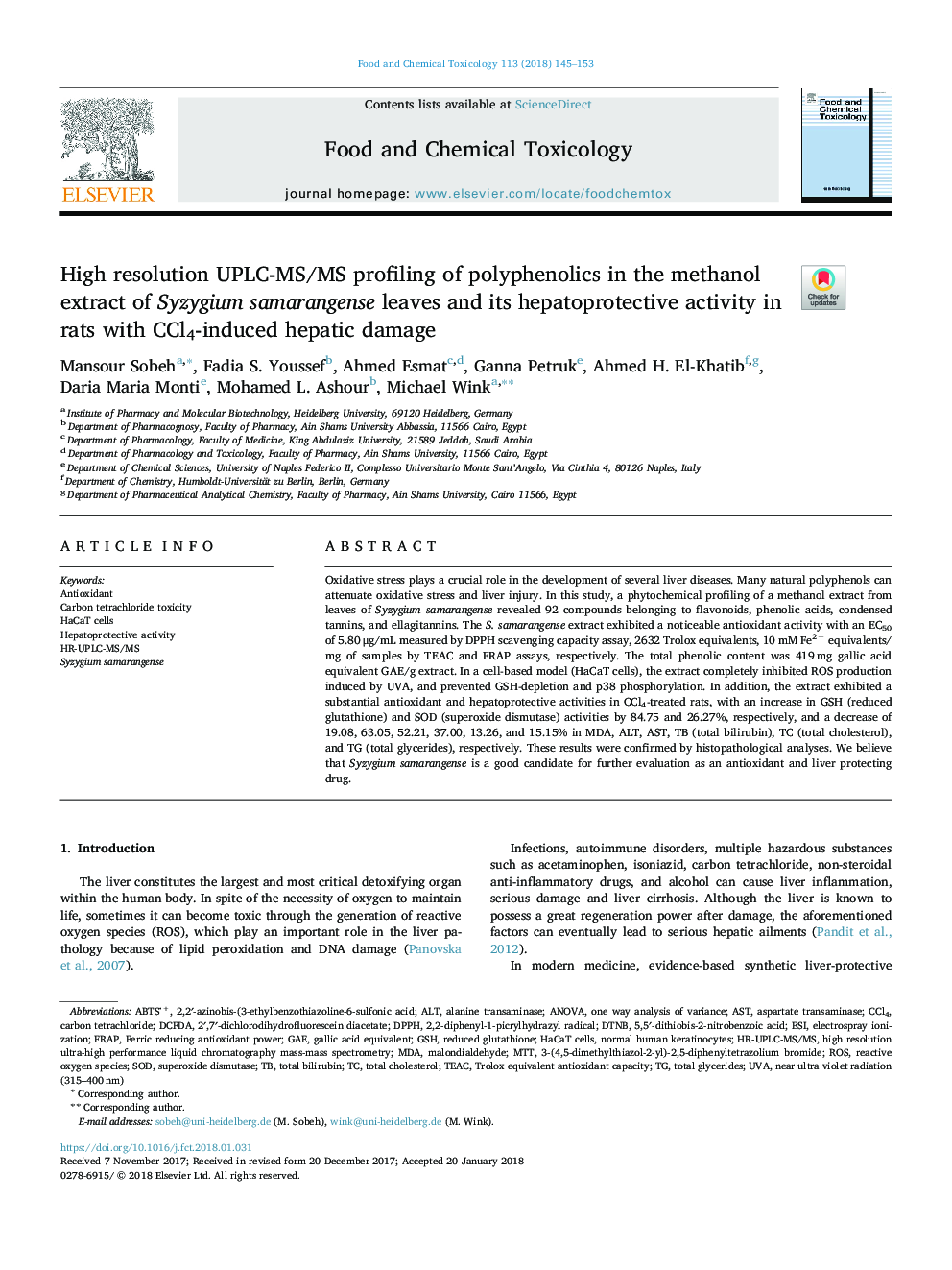| Article ID | Journal | Published Year | Pages | File Type |
|---|---|---|---|---|
| 8548196 | Food and Chemical Toxicology | 2018 | 9 Pages |
Abstract
Oxidative stress plays a crucial role in the development of several liver diseases. Many natural polyphenols can attenuate oxidative stress and liver injury. In this study, a phytochemical profiling of a methanol extract from leaves of Syzygium samarangense revealed 92 compounds belonging to flavonoids, phenolic acids, condensed tannins, and ellagitannins. The S. samarangense extract exhibited a noticeable antioxidant activity with an EC50 of 5.80â¯Î¼g/mL measured by DPPH scavenging capacity assay, 2632 Trolox equivalents, 10â¯mM Fe2+ equivalents/mg of samples by TEAC and FRAP assays, respectively. The total phenolic content was 419â¯mg gallic acid equivalent GAE/g extract. In a cell-based model (HaCaT cells), the extract completely inhibited ROS production induced by UVA, and prevented GSH-depletion and p38 phosphorylation. In addition, the extract exhibited a substantial antioxidant and hepatoprotective activities in CCl4-treated rats, with an increase in GSH (reduced glutathione) and SOD (superoxide dismutase) activities by 84.75 and 26.27%, respectively, and a decrease of 19.08, 63.05, 52.21, 37.00, 13.26, and 15.15% in MDA, ALT, AST, TB (total bilirubin), TC (total cholesterol), and TG (total glycerides), respectively. These results were confirmed by histopathological analyses. We believe that Syzygium samarangense is a good candidate for further evaluation as an antioxidant and liver protecting drug.
Related Topics
Life Sciences
Agricultural and Biological Sciences
Food Science
Authors
Mansour Sobeh, Fadia S. Youssef, Ahmed Esmat, Ganna Petruk, Ahmed H. El-Khatib, Daria Maria Monti, Mohamed L. Ashour, Michael Wink,
